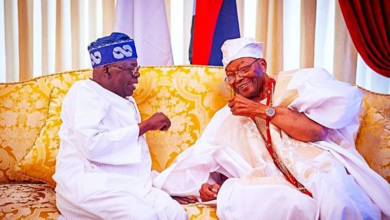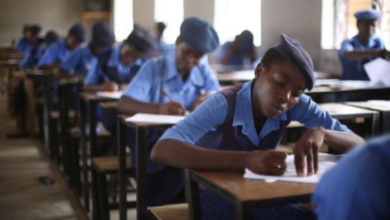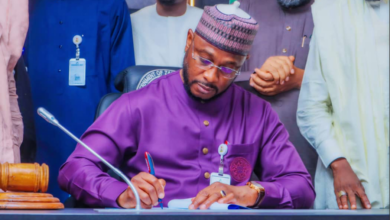ICPC Tasks Youths to Champion the Fight against Corruption
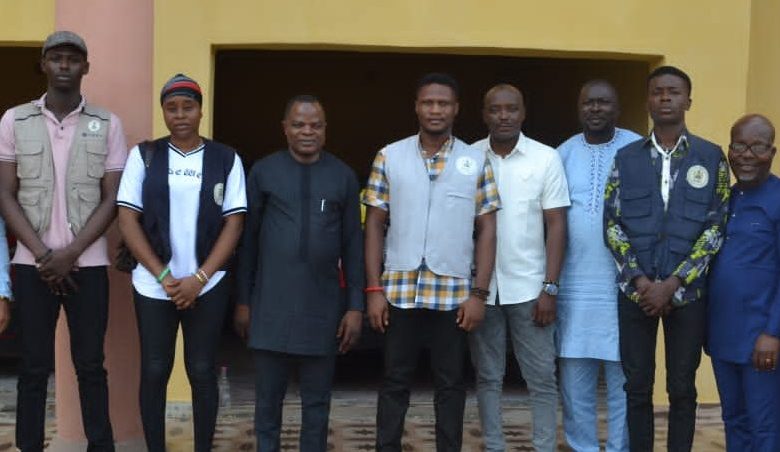
Youths have been charged to champion the fight against corruption in their respective campuses in order to enjoy the socio-economic and political benefits of a corruption-free society.
This charge was given by the Resident Anti-Corruption Commissioner (RACC) of the Imo State office of the Independent Corrupt Practices and Other Related Offences Commission (ICPC), Mr. Peter Adamu Alumbugu, during a courtesy visit by the members of the Student Anti-Corruption Vanguard (SAV) of the Federal University of Technology, Owerri (FUTO) at the Commission’s conference room in Owerri recently.
In his welcome speech, the RACC noted that youths are vibrant and form a large segment of the Nigerian population, and as a result should position themselves at the forefront of the anti-corruption fight in both their schools and communities.
He encouraged the students to be courageous, vigilant and to promptly report corrupt practices in their school environment to the appropriate authority, emphasing that it is the only way to curb impunity and cases of abuse amongst lecturers.
Mr. Alumbugu also admonished the students to live above board and be of good conduct in all their academic activities on the campus, stressing that “he who comes to equity, must come with clean hands”.
He reiterated the fact that the Commission is very much concerned with entrenching the culture of integrity in schools nationwide.
Responding, the President of the SAV of FUTO, Mr. Amah Nelson, informed the Commissioner that the executive members of the Vanguard thought it necessary to pay a courtesy visit to formally get acquainted with the state office of the ICPC and to give a brief of their activities since being inaugurated in May, 2023.
Mr. Nelson, who spoke for the group, disclosed that since inauguration, the Vanguard has been working hard to checkmate corruption in the school and had been involved with election monitoring, investigation of corrupt cases, examination monitoring, checking cases of abuse by course representatives and working hand in hand with the Anti-Corruption and Transparency Unit (ACTU) of the institution.
He mentioned that some erring course representatives have changed their behaviour due to the vigilant activities of the Vanguard and also some persons who were not qualified for electoral positions were dropped.
Nelson thanked the Commission for creating the SAV platform for youths who are passionate about social change to actively contribute their best in minimizing the level of corruption in the school and the society.
During the event, heads of units of the ICPC in the state office explained the mandate and processes of the Commission to the students.
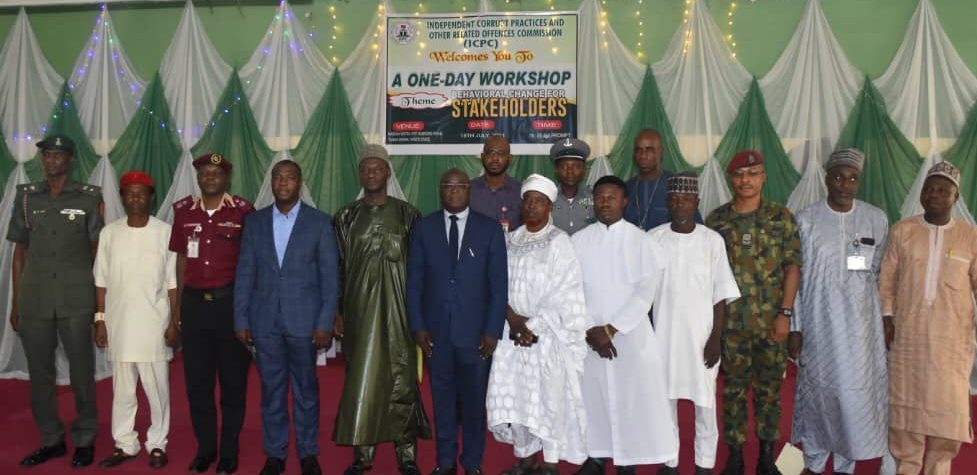
…Says Positive Behaviour Change Key to Tackling Corruption
The Independent Corrupt Practices and Other Related Offences Commission (ICPC) has urged Nigerians to embrace the National Ethics and Integrity Policy (NEIP) and positive behavioral change to bring about a corruption-free society.
The call was made by the Chairman, Independent Corrupt Practices and Other Related Offences Commission, Professor Bolaji Owasanoye, SAN, OFR, recently in Minna, Niger State, while declaring open a one-day workshop on behavoural change for stakeholders in the North-Central zone.
Professor Owasanoye, who was represented by the ICPC Niger State Resident Anti-Corruption Commissioner (RACC), Mr Zayyana Dan-Musa, stated that the measure would tackle issues of corruption in the public office and the society at large.
“The law-and-order approach to the fight against corruption alone is not enough to get rid of the menace from the society. With the present realities facing the nation, if we do not change our behaviours, we may not be able to bring about the changes that we desire to better our society.
“The ideal behaviour for citizens is that they should respect the laws of the land, keep their words, do their duty with diligence, respect and value other human beings, not get involved in stealing from government, cheating others or any form of deception. Unfortunately, many people are far from the ideal,” he said.
He stressed that there was need to make intentional efforts to turn around negative behaviours to positive ones through the inclusion of positive values and constant communication.
The Chairman further asserted that the workshop sought to integrate various research conducted by the Anti-Corruption Academy of Nigeria (ACAN), with the practical engagement of the Commission’s Public Enlightenment and Education Department and different segments of the society to bring about positive behavioural change in the society.
“As part of its corruption prevention mandate, ICPC through ACAN, organises training programmes to build capacity of public servants and the general public to be able to tackle corruption within their areas of operation,” he said.
Earlier, delivering the welcome address, the Head of Public Enlightenment and Education Department in the state Mr. Baba Alaro Shuaib enjoined the participants to pass on the anti-corruption crusade to the public for integrity, transparency and accountability in public and private lives in the country.
“We cannot overstress the importance of a people-driven anti-corruption crusade. Nigerians must be involved at all levels to ensure success,” he said.
Goodwill messages were delivered by dignitaries including the Secretary to the State Government (SSG), Niger State represented by the Permanent Secretary, Alh. Abubakar Usman Gawu, who stressed that we need an attitudinal change in order to move the country forward.
He pledged the support of State Government to step down the workshop to the grassroots.
The Bishop of the Catholic Diocese of Minna, Martin Uzoukwu, appealed to the masses to collaborate with ICPC and other stakeholders to tackle corruption through preaching positive values across the country.
Uzoukwu, who was represented by his Assistant, Fr John Linus, promised that the Church would inculcate good morals in their followers to shun corruption.
Similarly, Dr Idris Suleiman, lecturer and Imam, Justice Fati Abubakar Institute of Legal and Administrative Studies, Minna said that Muslims would ensure that their faithful change for the good of the society.
The one-day workshop was attended by civil society organisations (CSOs), faith-based organisations (FBOs), community-based associations (CBAs), the media, youth groups, professional bodies and representatives of the organised private sector.
icpc.gov.ng



